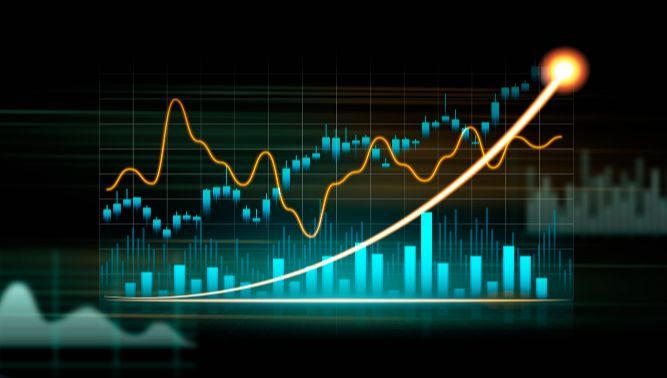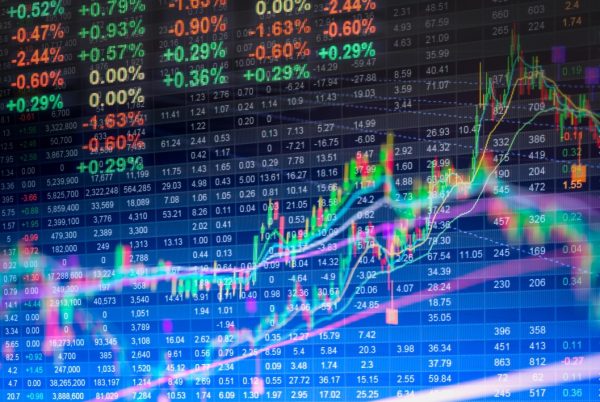Rhys Williams, CFA, Chief Strategist
June 3, 2022
As we approach the halfway point of a seemingly no good, very bad year, investors are faced with some major choices as almost every asset class has fallen dramatically – stocks, bonds, crypto, and most recently, commodities like lumber.
The 60% stock and 40% bond portfolio that worked well for so many investors since the early 80s even during major periods of stock market upheaval, has done a face-plant this year. Remembering various crises since Ronald Reagan took office in 1980, the 60/40 portfolio always rose in value (yields fell) when stock markets posted significant losses. This was true in 1987, 1990-91, 2000-2002, 2008-2009, 2011, December 2018 and of course the infamous COVID-19 collapse of March 2020. This made prior stock market tantrums more tolerable, as at least part of the portfolio was rising.
However, this time is different and has provoked great soul searching from investors globally.
The good news is we think a 60/40 portfolio should begin to demonstrate more resiliency, leading us to recommend most investors stay the course. While the supply chain challenges of a hot war in Ukraine, a cold war with China and a zero-COVID policy adopted by President Xi domestically will likely continue to exacerbate inflation, we think the long-end of the bond market has started to do the Federal Reserve’s (Fed) work for them, by slowing demand every time the 10-year US Government bond approaches 3%. This has been the Maginot Line for prior economic slowdowns ever since the Great Financial Crisis of 2008. It appears to have held once again in mid-May as 10-year government bonds bounced off of 3% and breathed some much-needed life into market stability.
The canary in the coal mine was sparked by two widely-held and well-managed retailers, Walmart and Target, who reported disappointing earnings for May as they weren’t able to pass through all of their supply chain price increases. Despite better-than-expected revenues, earnings came up short as margins disappointed. While consumers won’t just blindly pay anything for everything; they have become more selective and have prioritized services and experiences over goods.
The reason why 3% long bonds seem to be a point of demarcation has positive implications for how much the Fed will have to raise short-term interest rates. Most major purchases are dictated not by how much a house or a car is worth, but by what can be done to rates or structure for a consumer to make a monthly payment. People care more about the monthly payment than how much it costs. Since both houses and cars have gone up in price since 2020, dramatically in some places, and banks have largely not decided to compromise on credit quality or down payments, the dramatic move in interest rates has choked off a segment of buyers who simply can’t tolerate the monthly payment on a new purchase. As housing and auto sales have important economic multipliers, we think a slowdown is now coming.
Two months ago, investors began to worry about unending short-term rate increases and bonds zooming towards 5% yields. We think that the economy would likely enter a recession long before we reach those levels.
Parenthetically, if rates stop at 3%, we think the chances of engineering a soft-landing or potentially just a mild recession greatly increase. This has positive implications for both stocks and bonds and is perhaps the main reason the market exited May with a skip in its step after five months of nuclear winter.
On the equity front, we believe investors should position themselves for a slowdown regardless if we enter a recession. Either way, we think you should consider owning some consumer staples, especially those tied to reopening activities like soft drinks, beer and snacks, REITs because of dividend growth and strong balance sheets, big-cap tech due to strong business models and some staple-like attributes (i.e., a cell phone which is a necessity and something that is used in good times and bad), and energy which we believe will enjoy good economics for at least two more years due to lack of prior investment. Energy is moving from deep value to growth which could lead to both earnings surprise and multiple revaluations. Given its still very modest weighting in the S&P 500 Index, well under 5%, and 13 years of underperformance, we think energy has the best chance to provide positive alpha as many managers don’t own it or are underweight, and many investors can justify holding exposure given positive financial attributes. We think some oil and gas companies are even searching for ESG characteristics, further enlarging the pool of investors. So, what could go wrong? A sudden end to the Ukraine war and a smiling photo op of Biden and Putin promoting a reset in international relations would take the wind out of energy’s sails. But unfortunately, this is an unlikely outcome. Hope I am wrong.
As we begin June, we are cautiously optimistic that the worst is behind us and while the international situation will keep worries high and multiples lower than normal, we believe that the complete decimation of equity portfolios, especially higher growth stocks, should be over. Importantly, if we are wrong on the economy and a slowdown becomes a severe recession, our stocks will move further to the downside, but the bond portion of portfolios should provide some ballast and the vicious circle to investors’ net worth that was January through mid-May, should be in the rear-view mirror.
The views expressed are those of Spouting Rock Asset Management as of June 1, 2022, and are not intended as investment advice or recommendation. For informational purposes only. Investments are subject to market risk, including the loss of principal. Past performance does not guarantee future results. There can be no assurances that any of the trends described will continue or will not reverse. Past events and trends do not imply, predict or guarantee, and are not necessarily indicative of future events or results. Investors cannot invest directly in an index.





